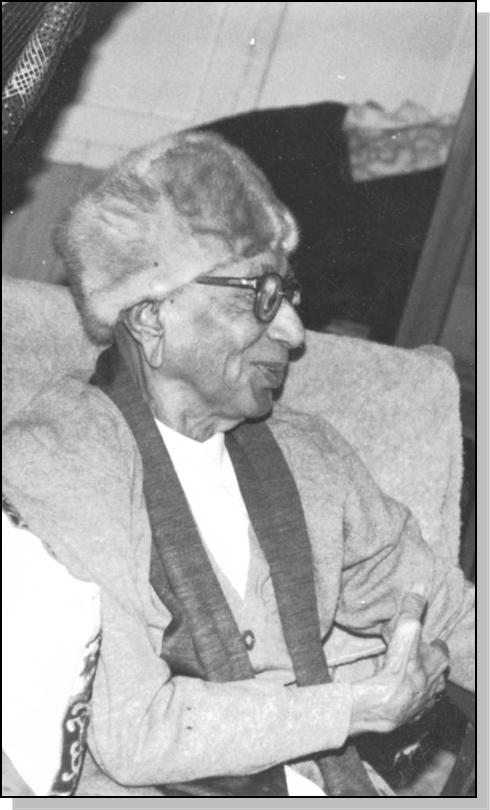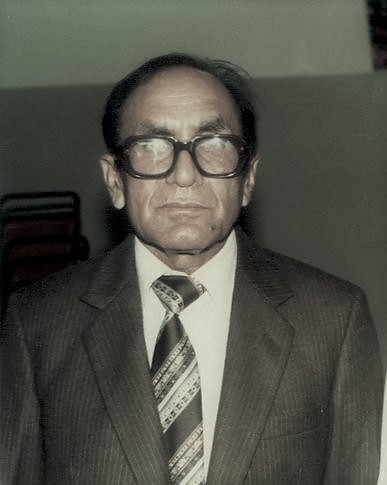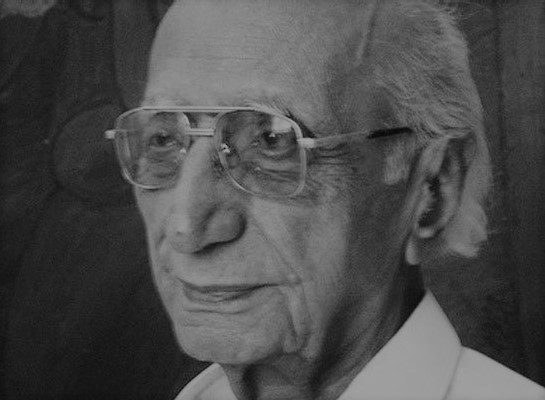
G. M. Syed Honors Cultural Justice
For G. M. Syed oath on scared books was more important than arguments
[Author’s Note: Will and Ariel Durant’s book – The Story of Civilization’s first volume appeared in 1935 and a complete set of eleven volumes was published in 1975. The authors took more than four decades to complete the manuscript. The readers well received the book. Therefore, their presence was sought in radio shows and press briefings. Will Durant has mentioned in one of his interviews that most common question around the globe was: ‘what is most important in human civilization, Intelligence, health or character? Will Durant responded the question that first comes the character, then health, and in the last – intelligence. I believe so, and it is still relevant in all walks of life.
I am of the view that in Sindh’s politics Mr. GM Syed, the nationalist leader and founder of Jeay Sindh Movement, was the powerhouse of ideas, and torchbearer of morality. Let me not shy, and state that he was the only politician, who practiced his ethos across the board, irrespective of political differences, power, age, class, and gender. I had been pondering over to document Jeay Sindh workers’ personal encounters with GM Syed. The present note was narrated by M.H. Panhwar to this scribe. Late Panhwar Sahib was a renowned engineer, progressive agriculturist, historian and author of several books. This is seventh article of the series.]
By Dr. Zaffar Junejo
In General Ayub Khan’s Martial Law, Sann, being the home town of G. M. Syed, was marked red. Therefore, people, even acquainted, rarely visited it. However, my nature of employment and its operative jurisdiction allowed me to visit the Sann. In most of the cases, I traveled along with Muhammad Ibrahim Joyo. In those days, G.M. Syed used to be active in resolving local disputes.

I am not sure that the days were fixed or not for the dispute settlement, but it might have been a time-consuming activity. One day, we reached there, and noticed unusual rush. On our query, it was told that last week, G. M. Syed’s cow had been stolen. The farmers had caught the thief and had brought him along with the cow. I was keen to observe the new role of G. M. Syed. I was curious to know how he would deal the situation. Soon, the thief was brought before him. Quickly, thief stated that ‘He swears upon Holy Quran that he has not stolen the cow’. G. M. Syed heard him, and stated that he want to see the cow. G. M. Syed went out, returned, and told his farmers: ‘I have seen the cow, it was not mine.’ He paused, and said to his followers that ‘alleged person intended to swear upon Quran, now he was innocent like us’.
Thus, he announced the judgment ‘let him free along with the cow.’ The decision created a jaw-dropped impact. The people were stunned. The accused person was also disoriented, and unable to react. There was pin drop silence.

Soon the gathering dispersed. But I was curious. At the lunch time, I posed a battery of questions to G. M. Syed, ‘I guess cow was yours, if it was the case, why did you disown it, and let the thief free.’ He took a deep sigh, and told that ‘in agro-pastoral society like ours, only oaths and promises seal peoples agreements and in dispute allow them to prove to be innocent.’ He added that ‘in their lives, it is a convenient and accepted way of justice’. He explained that ‘If the thief was challenged, it means we throw him out of the orbit of trust.’
I agreed, and also added: ‘till now oaths in African society are applied to settle conflicts, and these are used to assure peace and coexistence, and stop violation.’
[author title=”Dr. Zaffar Junejo ” image=”https://sindhcourier.com/wp-content/uploads/2021/11/Dr.-Zaffar-Junejo-Sindh-Courier.jpg”]Dr. Zaffar Junejo has a Ph.D. in History from the University of Malaya. He is freelance writer and his areas of interest are post-colonial history, social history and peasants’ history.[/author]
Click here for Part-I, Part-II, Part-III, Part-IV , Part-V, Part-VI